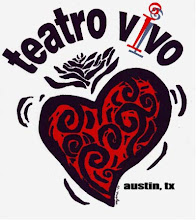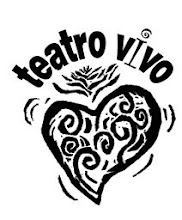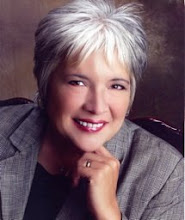A bit of personal information: yesterday was my 35th wedding anniversary. Yep, Jo Ann
has stuck with me that many years. It has been a long, joyous journey filled with three kids, all the best a parent could hope for. This column is dedicated to them.
"How do you build Latino audiences?" someone asked. The quick answer is to do Latino plays. The long and unsolved question is: What is a Latino play? I am not going to attempt to answer that.
Okay, maybe just one little attempt.
When anyone asks me, "What is a Latino play?" I usually respond, "Any play written by someone who identifies the subject matter, characters, or story with the 'Latino culture'." This is a very broad definition, but it encompasses some of the best work that would qualify as "Latinoesque".
For example, Chris Eska, a filmmaker from Gonzales, Texas has created a great film, August Evening that is in Spanish, while he is not a Spanish speaker. All right, so it's a film not a play, but what the hell. I'd call it a Latino work.
On the other hand, some plays written by Latinos do not have Latino characters or relate at all to the Latino experience. Monica Bustamante, for example, writes beautiful, nationally recognized plays that are really for more of a mainstream audience. (I realize that "mainstream" is a catchall term too.) I like her plays; I am a Latino and so is she; but I don't go to her plays for insight into my own experience as a Latino but rather to experience excellent writing usually accompanied by outstanding acting. Monica, I might add is equal in both disciplines.
I can make that separation, as many other Latinos do on a regular basis. But if we want to "grow a Latino audience," we need to offer them something different—characters, situations, and references to which new Latino audiences will easily relate. I mean, while we all love Waiting for Godot, would a first time theatergoer say, "Wow! I want to see more of this"? It would take a different individual to relate.
Let me take you back in time. When I was studying at UT Austin in the '70s, I was in love with theater (I still am). I did the Shakespeare, the Ibsen, and Williams' plays. Then I happened upon a free play at the Texas Union. A group of actors, later I learned that it was Teatro Campesino; all Latinos/Chicanos were doing this really funny play called Los Vendidos.
They spoke Spanish and English simultaneously, used familiar expressions, made fun of them in a way that we did privately, and made social commentary about racism, prejudice and some of our own shortcomings. This style of theater, while not new at all, was new to me. It opened a door to something that I loved more than my wife-to-be at the time. (We did break up due to all the time I spent at the theater, but we got back together. Just think, kids you might have had a different dad. Okay, I heard that.)
Rushing back to the Drama Building, I went straight to my theater history teacher to inform him of a great discovery, like had I been an astronomy major who had just discovered a comet or something. He calmly said, oh yeah, that's Luis Valdez, he doesn't do theater, he does politics.
I have never been in a head-on collision but this is what it must feel like. All your inertia heading in one direction suddenly being stopped, crushing your body, forcing all the air out of your lungs with the G forces being experienced. I just left. And then forgot about it. Fortunately, a few months later Dr. Jorge Huerta, almost retired from UCSD, came to campus and told of this whole theater movement that included Luis Valdez and other companies across the US and Mexico. He had scripts, notes and by the time he left, we had formed our own group.
Theater became something to me that I realized that it hadn't been. I enjoyed the stage, the stagecraft, even had done a little writing at the time. But now it was "relevant". It could encompass who I was and the reality that I had experienced. And trust me folks, it is different.
If you grow up Chicano/Latino, Black, Asian, Native American or even rural or urban, we all share some American cultural qualities, but there are big differences and most are never revealed. Now, theater would allow me to share these with other Latinos to validate our experiences and non-Latinos to try to provide some insight for them into who we are.
So how do you grow Latino audiences? With plays that let them go home feeling that they just saw themselves on stage. That their lives are worth the time and energy to create stories that speak to them in both language and relevance. Do I mean that they merely mirror back their lives? That Latino plays should merely regurgitate back who we are? No, they should be just like other successful plays that question who we are and where we are going.
Tuesday, May 26, 2009
Subscribe to:
Post Comments (Atom)








3 comments:
Rupert, great post!
I like your broad definition of Latino work. Our community has a wide spectrum of experience (from recent immigrant to many generations in the US; not to mention the wide variety of countries of origin), so I think a broad definition suits it. After all, how can there be one singular definition for what it means to be Latino?
Happy 35th Rupert & Jo Ann.
Agreed..., because the Latino culture is so rich in flavor it is that flavor it craves most. As Latinos venture out into 'mainstream' society the craving becomes that much stronger.
Americanos!
Those of us with 'roots' in the Americas.
The way I understand it, there is a human need to identify with origin and history - 'Knowledge of Self' - That certain dynamic of being aware of our own human characteristics in order to live life in its fullness. - Identity.
Personally, I have evolved from claiming my 'Identity' as being a 'Chicano' - (one who is a descendant of Mexican immigrants & born in the USA) To 'Hispanic' (when the concept of 'Inclusion' came into play in my ever cultural metamorphosis, recognizing my Grandfather from Peru and all those Spanish speakers from South America to North America) Then along came the realization that there are some who do not necessarily speak Spanish who belong ‘in the mix’, take for instance Portuguese - from the 'Romance Language' Latin. Which naturally gravitated me towards claiming the label of 'Latino' –
(Though I sometimes would say "I am a 'Latiyes'"!) Go figure!
In 1999 I was very fortunate to be invited to meet Edward James Olmos who had been invited by a group of Latinos here in Houston, TX a group who identify themselves as "La Palabra" - Mr. Olmos not only was here supporting the movement and its interests within the Houston Latino Community, but was also promoting his latest contribution to his craft - a Book about Latino Life in the United States, which clamors, asks for, and in a sort of around about way demands 'Recognition', ' Inclusion', and rightfully so ' A Place in US History.
_ “Americanos.” by Edward James Olmos, Carlos Fuentes & Lea Ybarra.
http://www.amazon.com/Americanos-Latino-Life-United-States/dp/0316649090#reader
Book contributor David Carrasco says of Latinos, "We are both an accomplished and an unfinished people, and the same could be said of this country and all its promise."
Another excerpt which attracted my attention was "... Today we continue our pilgrimage toward the North. Regardless of the direction, We are pilgrim people." Don Virgilio Elizondo.
The book and its images allowed me to take a journey of remembrance about some people who either by choice or destiny - some may even call it Karma - have been able to maintain a simpler kind of view on 'Culture', their very own!
Through simple twists of fate ' La Conquista' seems to have not influenced their way of 'being' 'seeing' and/or 'meddling into explaining dilemmas of life and its intricacies'- If it has, it has been at its very minimal.
I know, I have been there. Have spent time working with them and getting to know about them (and myself), I have observed them living and enjoying life at its simplest form (according to my way of 'seeing')- They do not speak any form of the 'Romance Languages' - I think we call it 'Dialects' and for whatever the research I've done is worth, the dialect spoken by some in the Yucatan Peninsula is closer to the Greek, as a matter of fact the only other for of spoken word that has ‘spirits within’ (something like in music, 'silent notes' - ghosts - go figure!)
To make a long story even longer, I now proudly claim to be an 'Americano' and at certain times I enjoy being called by the name given to me by the Mayas from Yokzonot, _ Ma'aloh! (Notice the spirit within!)
Maybe this makes for a 'play' maybe not!
Identity - Go figure!
Post a Comment